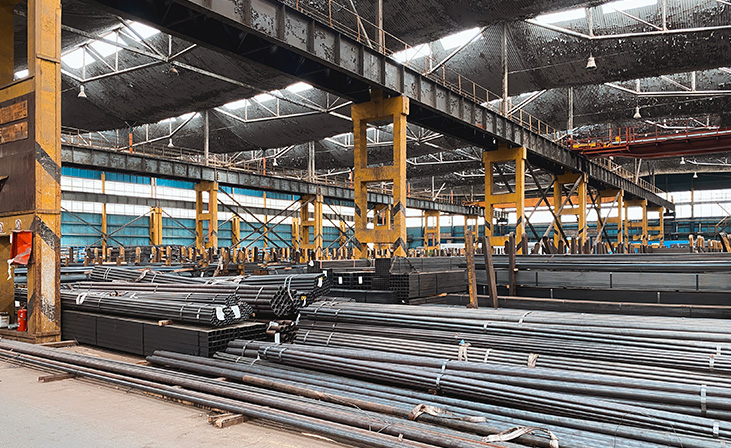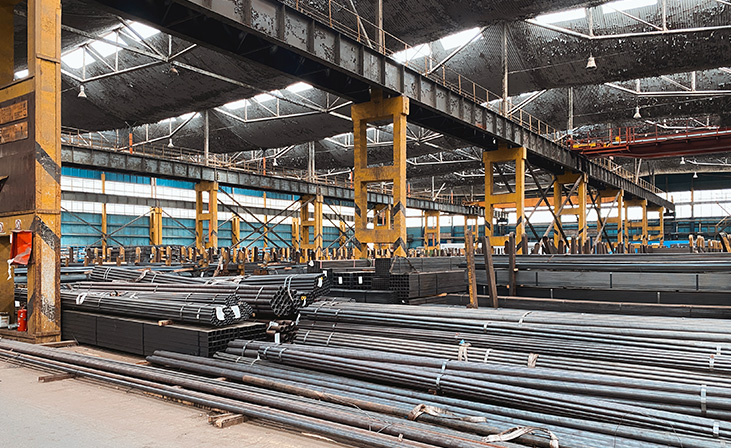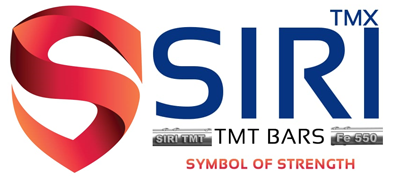
SIRI POWER REBARS
NEXT GENERATION-TECHNO GRIP REBARS THE BEST CHOICE FOR EVERY CONSTRUCTION
PADMASREE TMT STEELS PVT LTD., as we are known to our associates has been in the manufacturing of TMT rebar/MS billets since 2004. With having production capacity of 1,68,000 MT TMT bars per annum, 1,05,000 MT MS billets per annum and 6MW per hour gas based power plant capacity, all are under one roof which is located at Devarapalli village.
TECHNICAL SPECIFICATIONS
| Description | TMT |
|---|---|
| Standards | IS1786-2008 |
| Grade | Fe-500, Fe-550 Fe-550D |
| Specifications | 8mm to 32mm |
| Nominal size mm | BIS Standards weight per mtr in kgs | Tolerance | SIRI power rebars weight per mtr in kgs |
|---|---|---|---|
| 8 | 0.395 | +/- 7% | 0.380 – 0.395 |
| 10 | 0.617 | +/- 7% | 0.590 – 0.617 |
| 12 | 0.888 | +/- 5% | 0.860 – 0.888 |
| 16 | 1.58 | +/- 3% | 1.580 – 1.610 |
| 20 | 2.47 | +/- 3% | 0.380 – 0.395 |
| 25 | 3.85 | +/- 3% | 3.860 – 3.900 |
| 32 | 6.31 | +/- 3% | 6.320 – 6.380 |
|
PROPERTY |
MECHANICAL PROPERTIES (Percentage minimum) |
|||||
|---|---|---|---|---|---|---|
|
Fe – 500 |
Fe – 550 |
Fe – 550D |
||||
|
BIS |
SIRI |
BIS |
SIRI |
BIS |
SIRI |
|
|
.2% proof stress / Yield Stress Min, N/Sqmm |
500 |
530 |
550 |
570 |
550 |
560 |
|
Elongation % Min on gauge Length 5.65 ??a- A is cross sectional Area |
12 |
20 |
10 |
18 |
14.5 |
16.5 |
|
Constituents |
CHEMICAL COMPOSITION (percentage MAX) |
|||||
|---|---|---|---|---|---|---|
|
Fe – 500 |
Fe – 550 |
Fe – 550D |
||||
|
BIS |
SIRI |
BIS |
SIRI |
BIS |
SIRI |
|
|
Carbon |
0.30 |
0.25 |
0.30 |
0.25 |
0.25 |
0.20 |
|
Manganese |
NS |
0.60 |
NS |
0.65 |
NS |
0.70 |
|
Sulphur |
0.055 |
0.050 |
0.055 |
0.050 |
0.040 |
0.035 |
|
Phosphorous |
0.055 |
0.050 |
0.050 |
0.050 |
0.040 |
0.040 |
|
Sulphur & Phosphorous |
0.105 |
0.100 |
0.100 |
0.095 |
0.075 |
0.075 |
|
Nominal size of specimen |
Diameter of Mandrel |
|||||
|---|---|---|---|---|---|---|
|
Fe 415 and 500 |
Fe 550 and FE 500 |
Fe 550D |
||||
|
BIS |
SIRI |
BIS |
SIRI |
BIS |
SIRI |
|
|
Up to and including 10mm |
5ø |
4ø |
7ø |
5ø |
6ø |
5ø |
|
Over 10mm |
7ø |
4ø |
8ø |
5ø |
7ø |
5ø |
SIRI POWER ADVANTAGES
1.Simple Bendability
2.Superior ductility
3.Unrivalled Welding strength
4.Intense bonding
5.Earthquake resistance
6.High tensile strength
7.Fire resistance
8.Corrosion resistance
9.Low sulphur and phosphorus
10.Extra yield strength
11.Uniform micro structure
12.Uniform rib pattern
TECHNICAL DETAILS

SIRI POWER Fe 550D Rebars are thermo Mechanically Treated (TMT) steel bars produced Through advanced HYQST (High Yield Quenching and self – Tempering process)/ QST (Quenching and self Tempering) process. HYQST/ QST process includes hot rolling of the billets in the most modern barmill followed by water quenching, self – tempering and atmospheric cooling. During quenching, the temperature of the rebar drops at a faster rate at the periphery leading to a hard surphase, while the high temperature core gets cooled slowly. The thermal stresses generated during quenching are relieved by the heat released from the core during the next step called self- tempering. Finally atmospheric cooling at the cooling bed leads to a strong casing and a soft core in the rebars giving the significant strength and ductility. The reason behind such unique combination of strength and ductility is that at higher cooling rate, the surface attains a hard phase of steel known as Martensite while the core will soft phases like ferrite and pearlite.
unmatched benefits of siri power
1.REDUCTION OF STEEL CONSUMPTION
Designing structure with Fe 550D reduces the steel consumption by 12 -15% with optimisation using Fe 550D steel.
2.REDUCTION IN BAR CONGESTION
Using stronger grade steel means reduction in bar diameter that results in increased bar spacing as fewer rebar`s needed.
3.REDUCTION IN LABOUR COST
Using lesser steel requires less labour which saves on labour cost.
4.FASTER CONSTRUCTION
Less time is wasted on placing / tying of bars and less weight on cranes improves construction efficiency.
5.BIGGER SAVINGS
When the same structure is constructed with 3 different grades of steels, there will be remarkable saving in case of use of Fe 550D.








